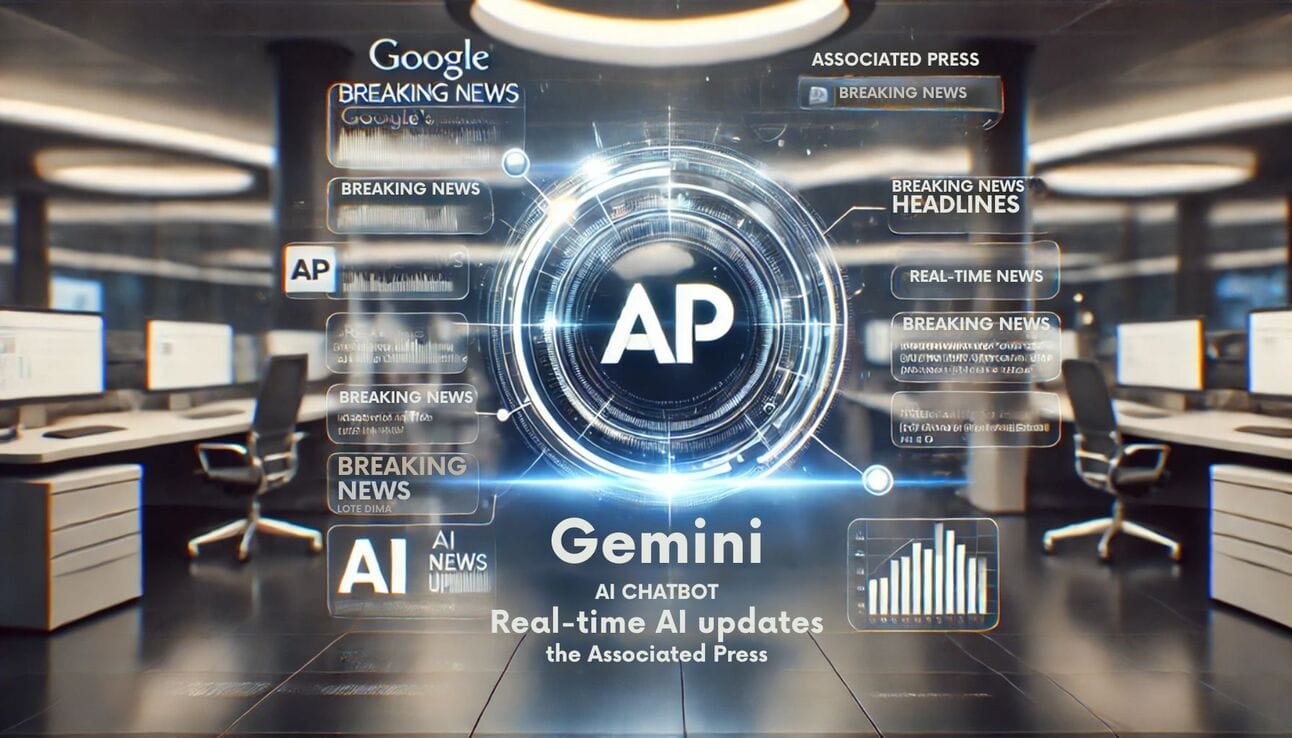
Image Source: ChatGPT-4o
Google Partners with AP to Bring Real-Time News to Gemini AI
Google has signed a groundbreaking deal with The Associated Press (AP) to integrate real-time news into its Gemini AI chatbot, marking the tech giant's first agreement with a news publisher for generative AI. Announced on Wednesday, the partnership highlights a strategic move to enhance Gemini’s capabilities with timely, accurate journalism while addressing ongoing concerns about AI’s use of copyrighted content.
Details of the Partnership
Real-Time News Integration: AP will provide a continuous feed of up-to-date news to Google’s Gemini, enhancing the chatbot’s usefulness by ensuring accurate and current information.
Commitment to Nonpartisan Reporting: AP’s Chief Revenue Officer Kristin Heitmann emphasized the collaboration as part of a longstanding relationship with Google, underpinned by AP’s dedication to unbiased journalism.
Financial Terms and Presentation Unclear: While neither company disclosed the financial terms, it remains uncertain how Gemini will credit AP’s content or link back to original articles.
Broader Context
This partnership follows a growing trend of news organizations licensing their content to AI companies:
AP and OpenAI: In 2023, AP signed a licensing deal with OpenAI, granting access to its news archives for training AI models.
Legal Tensions: As partnerships grow, so do legal challenges. Organizations like The New York Times have sued AI companies, alleging copyright infringement for using content without permission.
Tech companies, on the other hand, argue that utilizing publicly available text constitutes “fair use” under U.S. copyright laws. To mitigate legal risks and improve AI reliability, companies like Google are increasingly securing high-quality data sources through licensing deals.
The Stakes for News Organizations
AI partnerships offer much-needed revenue for news outlets facing financial difficulties, but they also present risks:
Advantages:
Additional revenue streams for struggling news organizations, such as AP, which has faced declining income from traditional newspaper clients.
Improved quality of AI-generated information, which benefits online users.
Risks:
Loss of control over how journalism is monetized and used by AI platforms.
Potential commodification of journalism, reducing news outlets to mere suppliers of data.
Sarah Kreps, director of Cornell University’s Tech Policy Institute, warns that outsourcing journalism to tech companies may weaken direct relationships with readers, risking long-term sustainability for news organizations.
“You either sign a deal with an AI company and work with them and kind of take what they offer for all of your hard work, all of your articles, all of your data, or you fight, the way that The New York Times and others are trying to do in court,” said Alex Mahadevan, director of The Poynter Institute’s Mediawise, a digital media literacy initiative.
What This Means
Google’s collaboration with AP underscores the growing intersection of AI and journalism. For tech companies, licensed content from reputable sources enhances the quality and credibility of their AI models. For news organizations, such partnerships provide a lifeline amid financial challenges but at the cost of ceding some control over their intellectual property.
As AI tools like Gemini evolve, the industry must strike a balance between leveraging AI’s potential and safeguarding the integrity and value of journalism. The deal also raises critical questions: How will AI platforms present journalistic content? Will they fairly credit news outlets, or will they further disrupt the traditional revenue model for journalism?
Editor’s Note: This article was created by Alicia Shapiro, CMO of AiNews.com, with writing, image, and idea-generation support from ChatGPT, an AI assistant. However, the final perspective and editorial choices are solely Alicia Shapiro’s. Special thanks to ChatGPT for assistance with research and editorial support in crafting this article.
